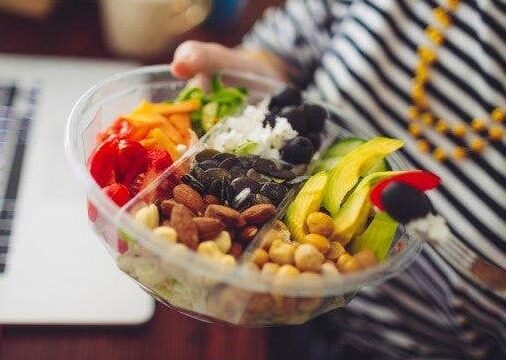Mental resilience is the ability to adapt to challenges, bounce back from setbacks, and maintain balance during stressful situations. For students in the United States, resilience is especially important as they juggle demanding academic schedules, extracurricular activities, social pressures, and personal responsibilities. While strategies like mindfulness, exercise, and good sleep habits all play a role in mental strength, food is a powerful, and often overlooked, tool that can influence how well students cope with daily stress. What we eat fuels not only our bodies but also our brains, making nutrition a foundation for resilience.
Understanding the connection between food and mental resilience starts with recognizing how nutrients affect mood, focus, and energy. The brain is an energy-intensive organ, using about 20 percent of the body’s daily energy supply. When students choose nutrient-dense foods, they provide the brain with the fuel it needs to stay sharp under pressure. On the other hand, when diets are filled with ultra-processed snacks or sugary beverages, energy spikes and crashes can interfere with concentration and emotional balance. Choosing supportive foods can help students build the stability and clarity required to meet life’s challenges with confidence.
Whole grains are one of the cornerstones of a resilience-friendly diet. Foods such as oats, brown rice, and whole wheat bread release energy slowly, preventing the sharp drops in blood sugar that can cause irritability or fatigue. For students who need to stay alert through long lectures or study sessions, having steady energy is crucial. A breakfast of oatmeal with fruit or a sandwich on whole grain bread for lunch can create a steady foundation for learning and problem-solving.
Another important category is colorful fruits and vegetables, which are rich in antioxidants, vitamins, and minerals. These compounds help protect the brain from oxidative stress, a process that can affect memory and cognitive performance over time. Blueberries, leafy greens, carrots, and bell peppers are excellent choices to add to meals and snacks. In addition to supporting brain health, fruits and vegetables provide hydration and fiber, both of which help maintain steady energy and focus throughout the day. Students who pack a container of sliced apples or baby carrots for school are giving themselves a resilience boost in a simple way.
Protein also plays a role in mental resilience because it supplies amino acids, the building blocks for neurotransmitters that regulate mood and concentration. Lean options such as beans, lentils, chicken, eggs, and tofu provide lasting satiety and mental focus. For students facing back-to-back classes or exams, a lunch that includes protein helps them remain calm and centered. For example, a bowl of lentil soup or a hummus wrap provides comfort while fueling the brain with what it needs to stay stable under pressure.
Healthy fats, especially omega-3 fatty acids, are another essential piece of the resilience puzzle. These fats are found in foods like salmon, walnuts, flaxseeds, and chia seeds. Research shows that omega-3s support brain flexibility and emotional balance, making them key allies for students navigating the ups and downs of school life. Adding a sprinkle of chia seeds to a smoothie or snacking on a small handful of walnuts can be an easy way to strengthen both brain function and emotional endurance.
Hydration is just as important as food when it comes to resilience. Dehydration, even mild, can cause fatigue, headaches, and reduced concentration. Students often reach for soda or energy drinks, but these beverages may contribute to energy crashes and restlessness. Water, herbal teas, and naturally flavored water with fruit slices are more supportive options. Keeping a reusable water bottle handy helps students maintain steady hydration levels, which directly supports resilience in both body and mind.
The timing of meals can also affect how resilient students feel during the day. Skipping meals often leads to dips in energy and mood, making it harder to respond to challenges calmly. Encouraging regular meals and snacks spaced evenly throughout the day provides consistency. A mid-morning snack of yogurt with berries or a whole-grain granola bar can help keep students fueled between classes. Evening meals that combine whole grains, protein, vegetables, and healthy fats support both relaxation and readiness for the next day.
Comfort foods, when chosen wisely, can also play a role in resilience. For many students, familiar foods provide a sense of grounding during stressful periods. Choosing healthier versions of comfort foods, such as baked sweet potato fries instead of fried versions, or homemade vegetable soup instead of packaged options, allows students to find emotional comfort without compromising their long-term resilience.
Beyond individual foods, the overall eating environment matters. When students eat in a calm and mindful way, rather than rushing or multitasking, they are more likely to feel satisfied and less stressed. Shared meals with family or friends can also provide emotional support, which is an important part of resilience. Food becomes more than just fuel in these moments—it becomes a way to connect, recharge, and strengthen social bonds.
Parents, educators, and communities all have a role to play in supporting students’ mental resilience through food. School meal programs that provide balanced options help create a foundation for success. Parents who pack lunches with whole foods and encourage regular hydration are giving their children important tools for mental strength. Even simple shifts, like offering fruit instead of candy at school events or including more vegetables in family dinners, contribute to long-term resilience.
For college students who may be navigating independence for the first time, learning to make balanced food choices is part of building resilience. Dorm life, late-night study sessions, and limited budgets can make it tempting to rely on fast food or packaged snacks. However, even small changes like keeping fruit, nuts, or yogurt on hand can support better focus and emotional balance. Cooking simple meals with a few fresh ingredients also helps students feel more in control of their health and more capable of handling academic stress.
Ultimately, food is not just about filling hunger. It is about nourishing the brain, supporting emotional stability, and giving students the strength to adapt to life’s demands. When students consistently choose meals that balance whole grains, colorful produce, lean proteins, and healthy fats, they are building a nutritional foundation for resilience. Pairing these choices with mindful eating habits and hydration creates a strong base for academic performance and personal growth.
The journey to mental resilience does not require perfection. Students may not always make the healthiest food choices, and that is part of learning balance. What matters most is creating patterns that support long-term well-being. By recognizing the role food plays in mental strength, students can approach their studies and their lives with greater confidence and adaptability.
In the fast-paced environment of modern education, resilience is more than just a skill—it is a lifeline. With the right foods on their plates, students can strengthen their mental resilience, giving them the energy, focus, and emotional steadiness to face challenges head-on. By weaving nutrition into the conversation about resilience, families and schools can empower students to not only achieve academically but also to thrive emotionally, preparing them for a lifetime of growth and success.






